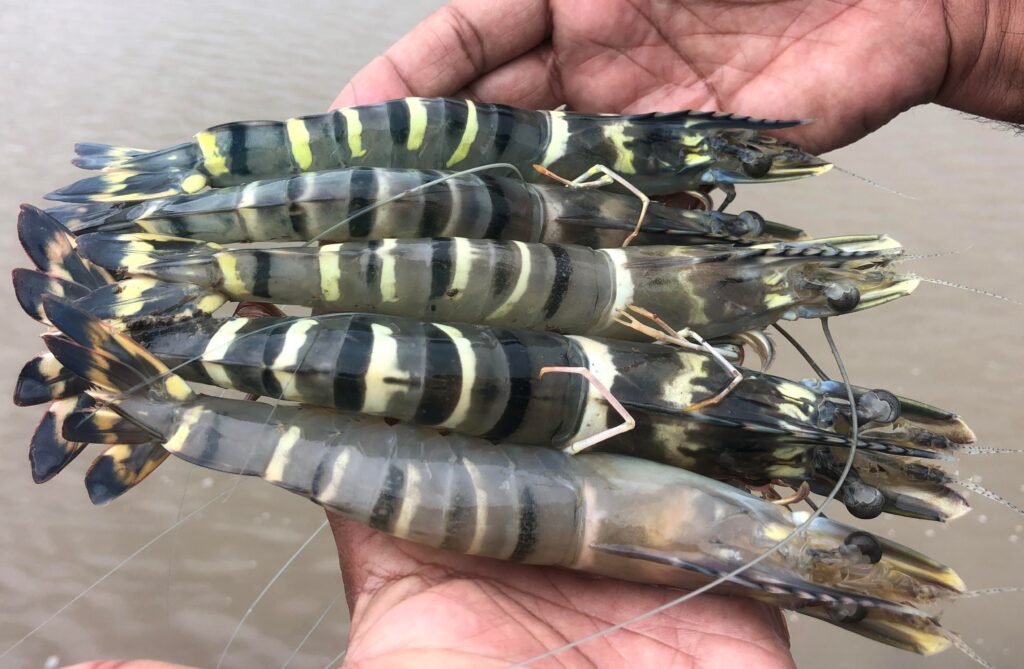Pravash Pradhan
New Delhi: The Union Budget has provided a boost to the shrimp sector with the announcement of financial support for establishing a network of Nucleus Breeding Centres for Shrimp Broodstocks and a reduction in customs duties.
Industry leaders and farmer representatives have welcomed the budget, recognizing its potential to foster growth in the sector.
Commenting on the budget, Ravi Kumar Yellanki, President of the All India Shrimp Hatchery Association, said, “From an industry viewpoint, the budget is positive to a certain extent. The reduction in customs duty is beneficial. Specifically, the duty on broodstock has been reduced from 10% to 5%. Given that broodstock imports are valued at around ₹130 to 140 crores, this reduction could result in savings of approximately ₹6 to 7 crores for the industry. Similarly, with artemia imports valued at about ₹240 crores, the duty reduction could save around ₹12 crores. Overall, we expect to save around ₹20 to 25 crores. This is a welcome relief for the hatchery sector. The support for the Nucleus Breeding Centre is also promising, though we are awaiting more details. Overall, the budget is a positive development, especially considering the current challenges faced by the industry.”
Dr. Manoj Sharma, a leading shrimp farmer from Surat, commented, “From a farmer’s perspective,the reduction in customs duty on broodstock and feed ingredients, such as insect meal, is commendable. Some products have seen a decrease in duty from 30% to 5%, and others have been exempted. The expected reduction in production costs by at least 10 to 20 rupees per unit will help farmers. However, I was hoping for more positive measures concerning domestic market promotion.”

Sourabh Shekhar, MD of Skretting India, noted, “This budget is positive for the aquaculture/shrimp industry, although there are a few areas to watch. Financial support for the establishment of Nucleus Breeding Centres for Shrimp Broodstocks will have a favorable impact, reducing reliance on imports. However, the reduction in import duty on shrimp feed may not be as beneficial given the existing overcapacity in the country.”
The Finance Minister stated, “For Shrimp Production & Export, financial support will be provided for setting up a network of Nucleus Breeding Centres for Shrimp Broodstocks. Financing for shrimp farming, processing, and export will be facilitated through NABARD”.
Regarding Marine Products, “India’s seafood exports reached an all-time high of more than
₹60,000 crore last financial year, with frozen shrimp accounting for about two-thirds of these exports. To enhance their competitiveness, I propose reducing the Basic Customs Duty (BCD) on certain broodstocks, polychaete worms, shrimp, and fish feed to 5%. I also propose exempting customs duty on various inputs used for the manufacture of shrimp and fish feed.”
CUSTOMS DUTY RATE CHANGES
Reduction in customs duty to lower input costs, deepen value addition, promote export competitiveness, correct inverted duty structures, and boost domestic manufacturing [with effect from 24.07.2024].
| S. No. | Commodity | From (per cent) | To (per cent) |
| I. | Agricultural Products | ||
| 1. | Shea nuts | 30 | 15 |
| II. | Aquafarming& Marine exports | ||
| 1 | Prawn and Shrimps feed | 15 | 5 |
| 2 | Fish feed | 15 | 5 |
| 3. | Following inputs for manufacture of Prawn and Shrimps feed or fish feed: Mineral &vitamin pre mixesKrill MealFish lipid oilCrude fish oilAlgal prime (flour)Algal oil | 30/15/5 | Nil |
| 4 | Artemia | 5 | Nil |
| 5 | Artemia cysts | 5 | Nil |
| 6 | SPF Polychaete worms | 30 | 5 |
| 7 | Live SPF Vannamei shrimp (Litopenaeusvannamei) broodstock& Live Black tiger shrimp (Penaeusmonodon) broodstock | 10 | 5 |
| 8 | Insect Meal for use in R&D for aquatic feed manufacturing | 15 | 5 |
| 9 | Single Cell Protein from Natural Gas for use in R&D for aquatic feed manufacturing | 15 | 5 |
| 10 | Pre-dust breaded powder for use in processing of sea-food | 30 | Nil |